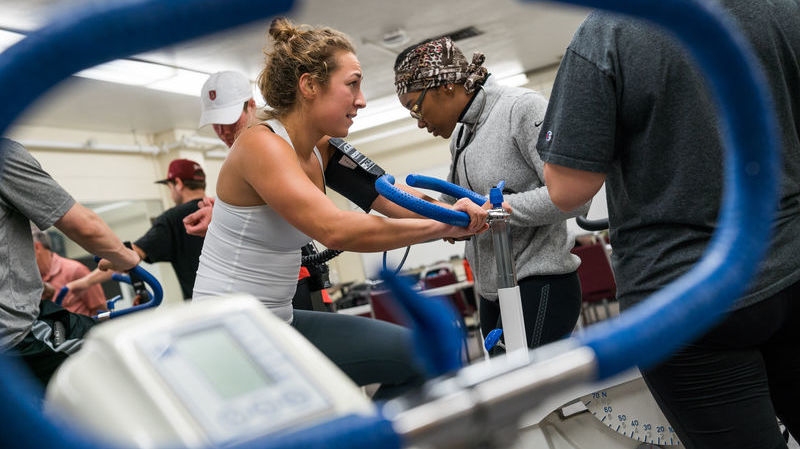
It’s well known that exercise can improve a person’s health: weight management, mood improvement, and heart disease prevention are common outcomes for regular exercise. But though these effects are documented, scientists don’t exactly know how and why regular exercise can produce these outcomes, especially related to heart disease prevention. In an effort to better understand exercise and heart disease prevention on a molecular level, postdoctoral fellow Junchul Shin is embarking on a research project with two-year, $110,000 funding from the American Heart Association (AHA).
Shin, a third-year fellow in Kinesiology associate professor Joon Young Park’s Cardiovascular Genomics Laboratory, plans to examine the molecular mechanism through which blood vessels form new capillaries, a process known as vascular formation. Shin will test whether low levels of oxygen after exercise induce the blood vessel molecules to form new capillaries, since people who exercise regularly have been shown to have a greater density of capillaries. “If there’s a density of capillary, there are greater health benefits,” says Shin. “We know that vessels are made through exercise. Researchers believe that density is related to hypertension, and increased density might decrease blood pressure.”
The specific vascular molecules targeted in Shin’s study are HIF 1 alpha (short for "hypoxia-inducible factor 1") and PHD2 ("prolyl hydoxylase domain 2"). Using an animal model involving mice, Shin will test if HIF 1 alpha activates and triggers blood vessel growth when PHD2 is dormant. Shin believes that PHD2’s inactivation is key to vascular formation, since it is known that PHD2 becomes dormant when the body is in a low-oxygen state — which is believed to be a common, temporary effect of exercise.
“Using an animal model, we will collect blood pressure measurements from mice in which PHD-2 is blocked in skeletal muscles,” says Shin. The experimental group’s blood pressure rates will then be compared to a control group’s rates. Shin’s project will be supervised by Park and receive assistance from two doctorate candidates and another postdoctoral fellow at Temple.
Exercise science and its underlying biological mechanisms have long been a major research interest for Shin. Originally from South Korea, Shin received a bachelor’s and master’s degree in exercise science from Sungkyunkwan University in Seoul. He then did his doctoral studies in biomedical science at Tohoku University in Sendai, Japan. In 2016 he joined Park’s lab, housed in the Lewis Katz School of Medicine, to further his research in exercise physiology as it relates to cardiovascular health.
“During my third year in university, I took a course and realized how important exercise is to health,” says Shin. “Exercise is a good strategy for some patients to improve their health, but it would be better to know how it delivers those benefits.”
